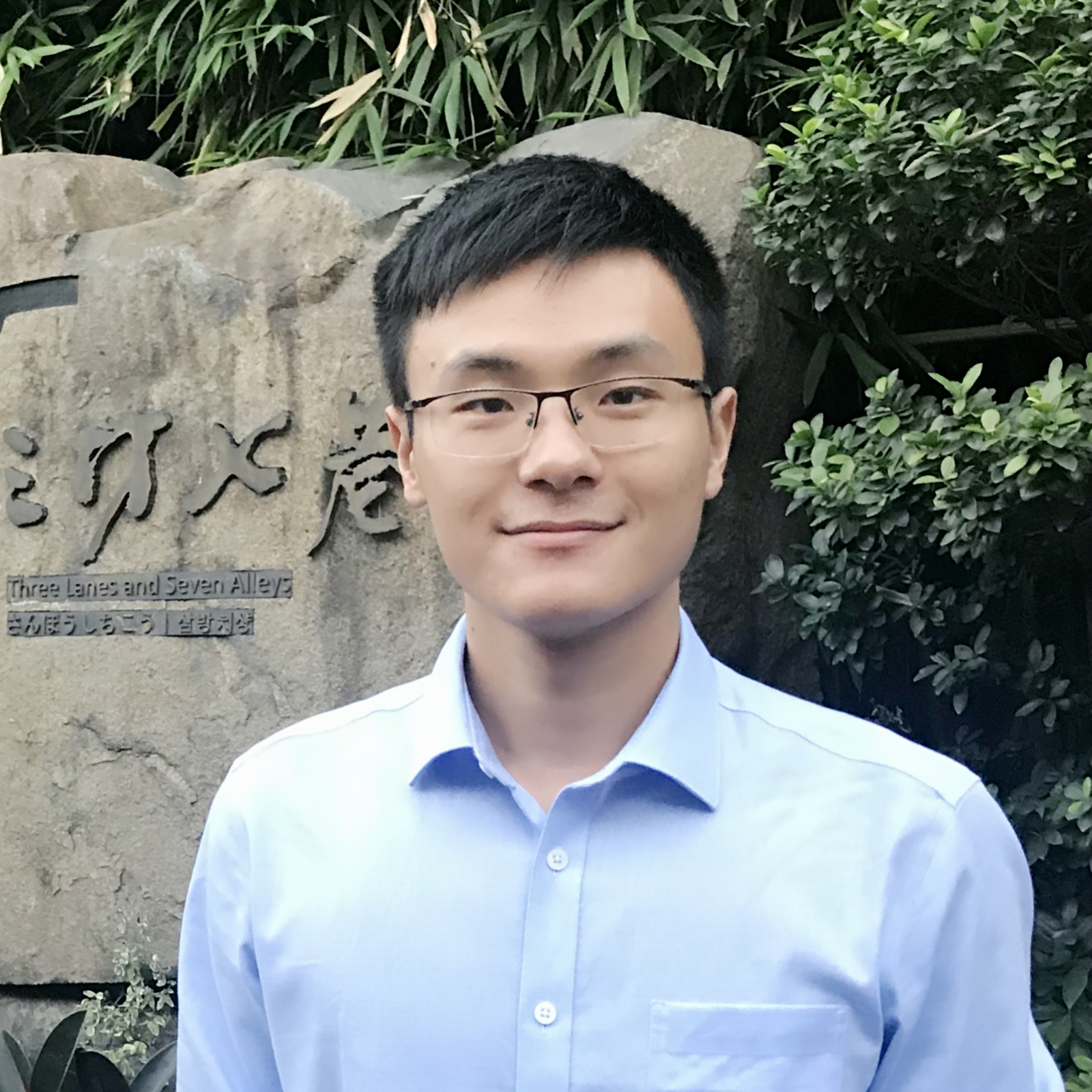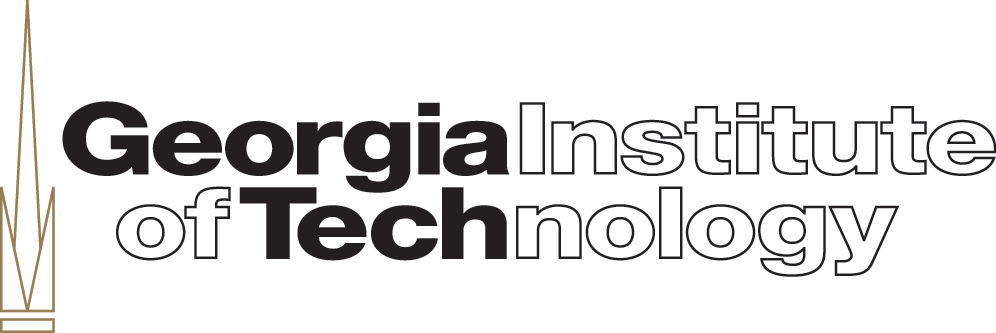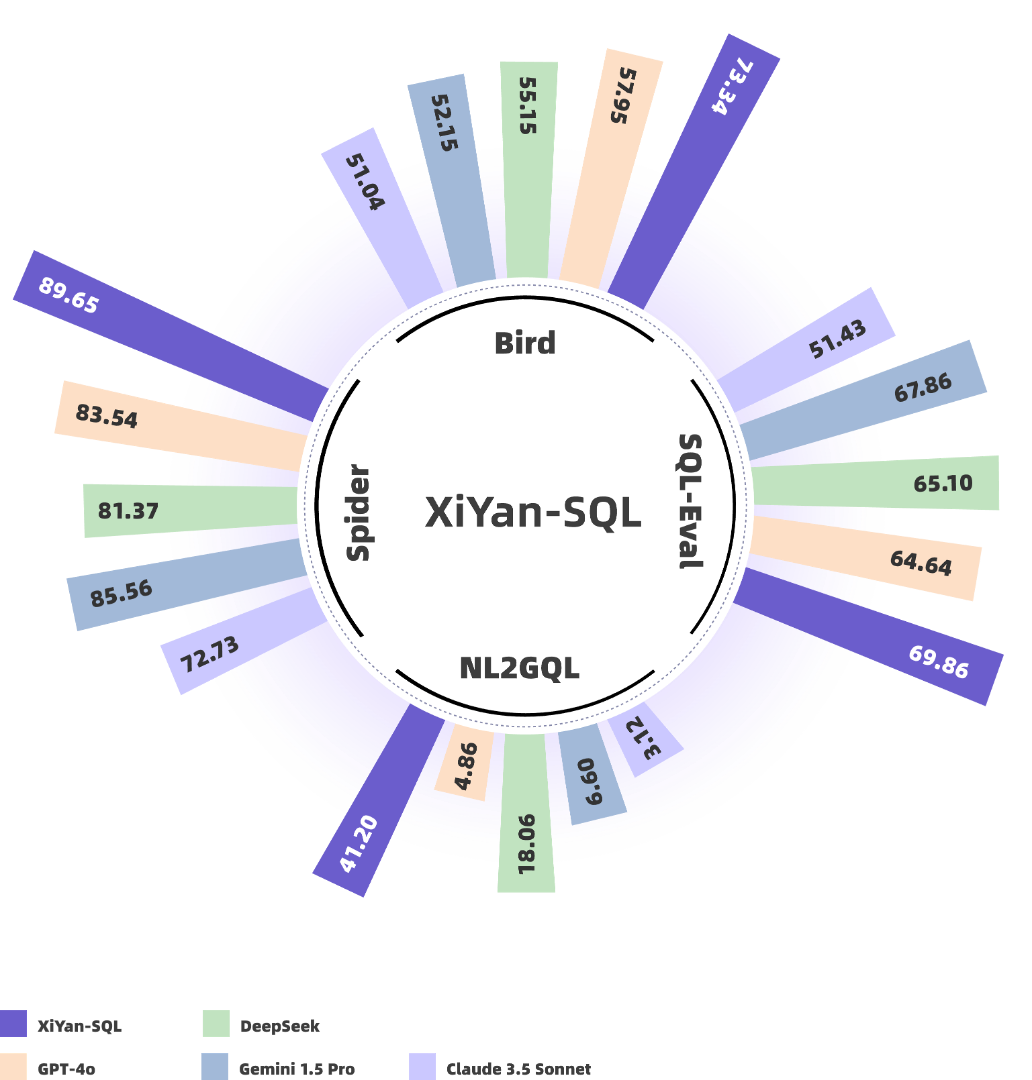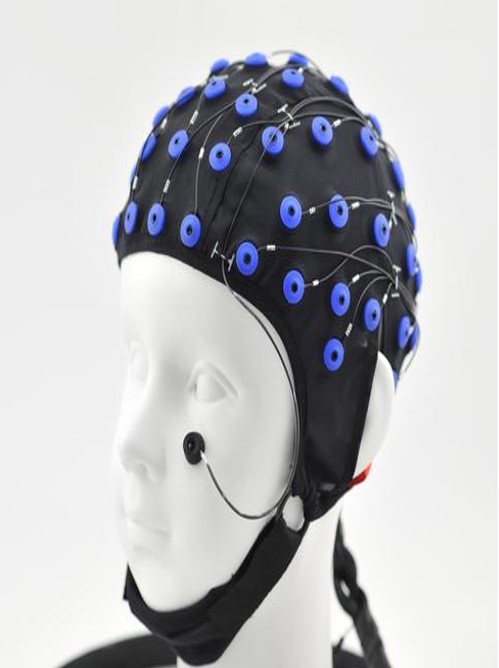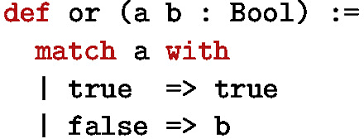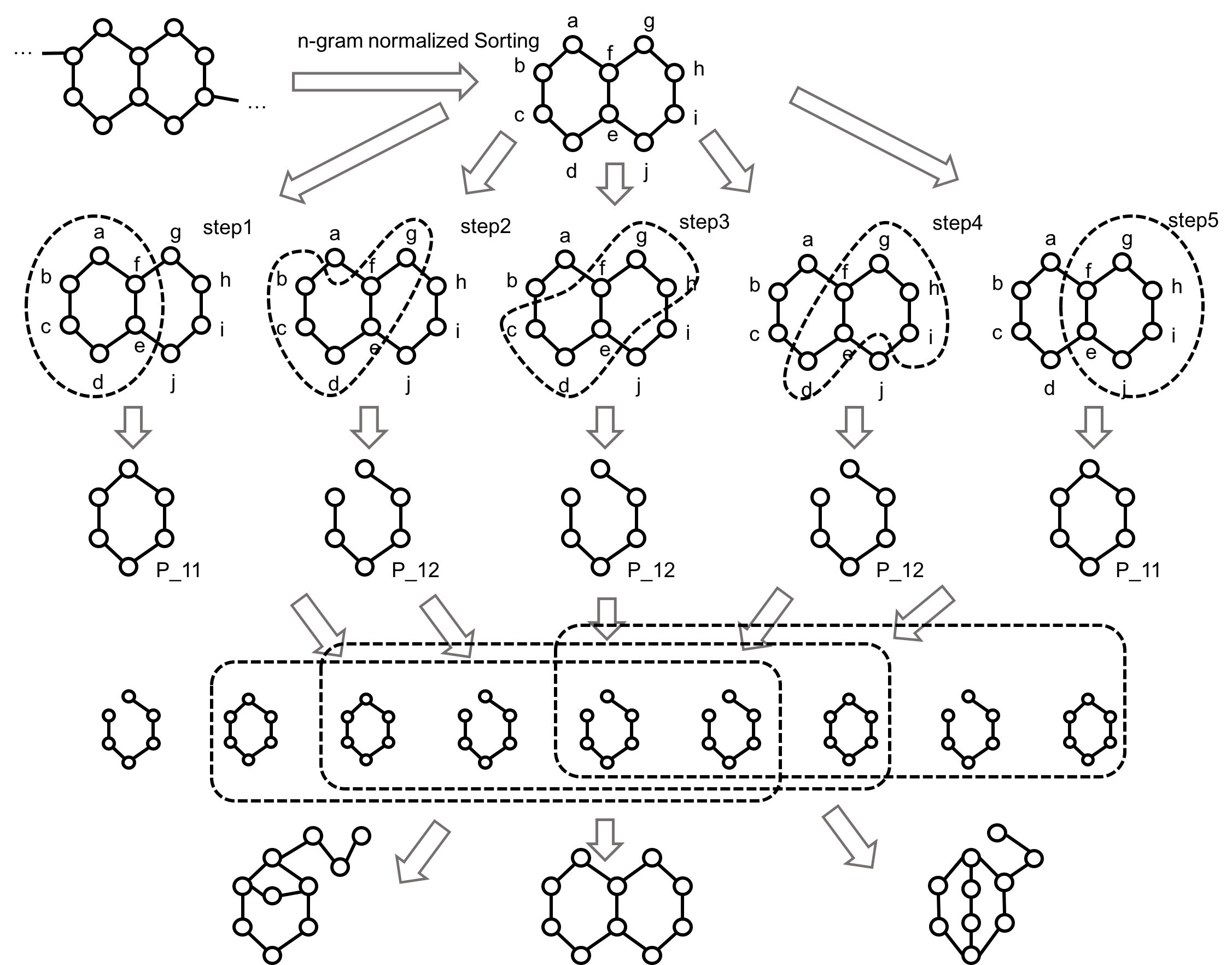Gao D, Li Z, Xie Y, ...Zhiling Luo, et al. (2025)AgentScope 1.0: A Developer-Centric Framework for Building Agentic Applications[J]. arXiv preprint arXiv:2508.16279, 2025. Full paper
Jiquan Wang, Sha Zhao, Zhiling Luo, Yangxuan Zhou, Shijian Li, Gang Pan. (2025)EEGMamba: An EEG foundation model with Mamba[J]. Neural Networks, 2025: 107816.
Zhiling Luo, Xiaorong Shi, Xuanrui Lin, Jinyang Gao. (2025)Evaluation Report on MCP Servers. Arxiv, Full paper
Yingqi Gao, Zhiling Luo. (2025)Automatic database description generation for Text-to-SQL. Arxiv, Full paper
Zhiling Luo. (2025)Reinforced Large Language Model is a formal theorem prover Arxiv, Full paper
Yingqi Gao, Yifu Liu, Xiaoxia Li, Xiaorong Shi, Yin Zhu, Yiming Wang, Shiqi Li, Wei Li, Yuntao Hong, Zhiling Luo, Jinyang Gao, Liyu Mou and Yu Li. (2024)XiYan-SQL: A Multi-Generator Ensemble Framework for Text-to-SQL Arxiv, Full paper
Jiquan Wang, Sha Zhao, Zhiling Luo, Yangxuan Zhou, Haiteng Jiang, Shijian Li, Tao Li, Gang Pan. (2025)CBraMod: A Criss-Cross Brain Foundation Model for EEG Decoding ICLR, Full paper
Yifu Liu, Xiaoxia Li, Zhiling Luo, Wei Zhou. (2023)JCDNet: Joint of Common and Definite phases Network for Weakly SupervisedTemporal Action LocalizationArxiv, Full paper
Yin Zhu, Zhiling Luo, Gong Cheng. (2023)Furthest Reasoning with Plan Assessment: Stable Reasoning Path with Retrieval-AugmentedLarge Language ModelsArxiv, Full paper
Zhiling Luo, Qiankun Shi, Sha Zhao, Wei Zhou, Haiqing Chen, Yuankai Ma, Haitao Leng.(2022)AliCHI: A Large-scale Multi-modal Dataset and Automated Evaluation Toolfor Human-like Dialogue SystemsArxiv. Full paper
Yingqi Gao, Zhiling Luo, et. al. (2022)End-to-end Multi-task Learning Framework for Spatio-Temporal Grounding in Video Corpus[C] ACM CIKM 2022.
Shiqian Chen, Zhiling Luo, et. al. (2021)Adapted Graph Reasoning and Filtration for Description-Image Retrieval[C] ACM SIGIR 2021.
Sha Zhao, Yizhi Xu, Zhiling Luo, Jianrong Tao, Shijian Li, Changjie Fan, Gang Pan (2021)Player Behavior Modeling for Enhancing Role-Playing Game Engagement[J] IEEE Transactions on Computational Social Systems.
[Best Paper Award] Meng XI,Zhiling Luo, et. al. (2020)A Latent Feelings-aware RNN Model for User Churn Prediction with onlybehavior data[C] IEEE SMDS 2020.
Yunzhou Shi, Zhiling Luo, et. al. (2020)G2T: Generating Fluent Descriptions for Knowledge Graph[C] ACM SIGIR 2020.
Yu Chen, Zhiling Luo, Sha Zhao, Ying Li and Jianwei Yin (2020)Adversarial Attacks on Graphs by Adding Fake Nodes[C] AAAI 2020 (Workshop DLGMA).Full paper
Bo Lin, Wei Luo,Zhiling Luo, Bo Wang, Shuiguang Deng, Jianwei Yin, Mengchu Zhou (2020)Bradykinesia Recognition in Parkinson's Disease via Single RGB Video.[J] ACM Trans. Knowl. Discov. Data (TKDD) 14(2): 16:1-16:19
Zhiling Luo, Yinghua Cui, Sha Zhao, Jianwei Yin. (2020)g-Inspector: Recurrent Attention Model on Graph.[J] IEEE Transactions on Knowledge and Data Engineering (TKDE). 2020.Code,Full paper
Sha Zhao, Feng Xu, Yizhi Xu, Xiaojuan Ma,Zhiling Luo, Shijian Li, Anind Dey, and Gang Pan. (2019)Investigating Smartphone User Differences in Their Application Usage Behaviors:An Empirical Study.[J] CCF Transactions on Pervasive Computing and Interaction, 2019
Sha Zhao, Yizhi Xu, Xiaojuan Ma, Ziwen Jiang,Zhiling Luo, Shijian Li, Laurence T. Yang, Anind Dey, and Gang Pan. (2019)Gender Profiling from a Single Snapshot of Apps Installed on a Smartphone:An Empirical Study.[J] IEEE Transactions on Industrial Informatics, 2019 (IF = 7.377) (JCRSection I).
Sha Zhao, Shijian Li, Julian Ramos,Zhiling Luo, Ziwen Jiang, Anind Dey, and Gang Pan (2019)User Profiling from Their Use of Smartphone Applications: A Survey.[J] Pervasive and Mobile Computing, 2019 .
Sha Zhao,Zhiling Luo, Ziwen Jiang, Haiyan Wang, Feng Xu, Shijian Li, Jianwei Yin, and GangPan. (2018)AppUsage2Vec: Modeling Smartphong App Usage for Prediction.[C] The 35th IEEE International Conference on Data Engineering (ICDE2019).
Zhiling Luo, Ling Liu, Jianwei Yin, Ying Li, Zhaohui Wu (2018).Latent Ability Model: A Generative Probabilistic Learning Framework forWorkforce Analytics[J] IEEE Transactions on Knowledge and Data Engineering(TKDE) (Full paper (pre-print version)).
Sha Zhao, Feng Xu,Zhiling Luo, Shijian Li, and Gang Pan (2018).Demographic Attributes Prediction Through App Usage Behaviors on Smartphones[C] ACM Workshop on The 2018 International Joint Conference on Pervasiveand Ubiquitous Computing(AppLens 2018).
Ying Li, Meng Xi, Yuyu Yin,Zhiling Luo, Honghao Gao, Jianwei Yin (2018).MeCo-TSM: Multi-Entity Complex Process-Oriented Service Modeling Method.[C] 2018 IEEE International Conference on Web Services (ICWS), 82 - 90.
Jianwei Yin, Bangpeng Zheng, Shuiguang Deng, Yingying Wen, Meng Xi,Zhiling Luo, Ying Li (2018).Crossover Service: Deep Convergence for Pattern, Ecosystem, Environment,Quality and Value.[C] 2018 IEEE 38th International Conference on Distributed Computing Systems(ICDCS), 1250 - 1257.
Junxiang Wang, Jianwei Yin, Shuiguang Deng, Ying Li, Calton Pu, Yan Tang,Zhiling Luo(2018).Evaluating User Satisfaction with Typography Designs via Mining TouchInteraction Data in Mobile Reading.[C] ACM SIGCHI 2018Full paper
Shenglin Zhang, Ying Liu, Weibin Meng,Zhiling Luo, Jiahao Bu, Sen Yang, Peixian Liang, Dan Pei, Jun (Jim) Xu, Yuzhi Zhang,Yu Chen, Hui Dong, Xianping Qu, Lei Song (2018).PreFix: Switch Failure Prediction in Datacenter Networks.[C] ACM SIGMETRICS 2018Full paper
Zhiling Luo, Ling Liu, Jianwei Yin, Ying Li, Zhaohui Wu (2017).Deep Learning of Graphs with Ngram Convolutional Neural Networks[J] IEEE Transactions on Knowledge and Data Engineering(TKDE) 29, 2125- 2139.Code,Full paper
Sha Zhao, Yifan Zhao,Zhiling Luo, Runhe Huang, Shijian Li, Gang Pan(2017).Characterizing a User from Large-scale Smartphone-sensed Data.[C] UbiComp/ISWC'17.Full paper
Zhiling Luo, Ying Li, Jianwei Yin, Honghao Gao, Yuyu Yin (2017).Service Pattern Evaluation: Studying Profitability from Perspective ofResource.[C] IEEE International Conference on Cognitive Computing.Full paper
Zhiling Luo, Ying Li, Ruisheng Fu, Jianwei Yin (2016).Don't Fire Me, a Kernel Autoregressive Hybrid Model For Optimal LayoffPlan.[C] 2016 IEEE Big Data.Full paper
Ying Li,Zhiling Luo, Binbin Fan, Jianwei Yin (2016).Who is the Most Diligent Employee? A Discriminate Model for e-GovernmentService Time Analyzing.[J] Journal of Industrial Integration and Management 2016 01:01Full paper
Jianwei Yin,Zhiling Luo, Ying Li, Zhaohui Wu (2016).Service Pattern: An Integrated Business Process Model For Modern ServiceIndustry.[J] IEEE Transactions on Services Computing.Code,Tech report,Full paper
Zhiling Luo, Ying Li, Jianwei Yin (2015).A Framework for Transmission Cost Aware Service Selection.[C] 2015 IEEE 22nd International Conference on Web Services (ICWS) 503-510.Code,Data,Full paper
Ying Li,Zhiling Luo, Jianwei Yin, Lida Xu, Yuyu Yin, Zhaohui Wu (2015).Enterprise Pattern: Integrating the business process into a unified enterprisemodel of Modern Service Company.[J]. Enterprise Information Systems, 2015: 1-21.Full paper
Jianwei Yin,Zhiling Luo, Ying Li, Binbin Fan, Weiwei Liu, Zhaohui Wu (2014).Towards a Service Pattern Model Supporting Quantitative Economic Analysis.[C] 2014 IEEE World Congress on Services (SERVICES) 95-102.Full paper
Zhiling Luo, Ying Li, Jianwei Yin (2013).Location: a feature for service selection in the era of big data.[C] 2013 IEEE 20th International Conference on Web Services (ICWS) 515- 522.Full paper
Ying Li,Zhiling Luo, Jianwei Yin. (2013).A location-aware service selection model.[J] International Journal of Services Computing. IEEE International Journalof Services Computing (IJSC) 1, 52-63Full paper
